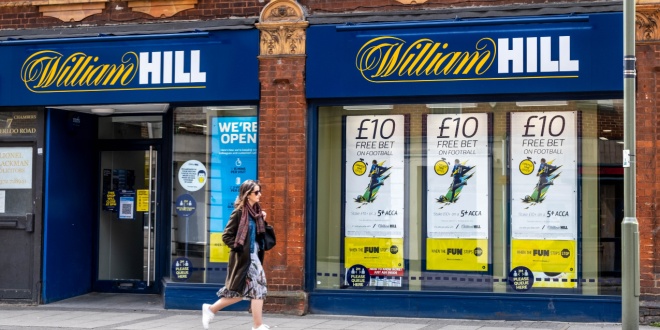UK gov might not be able to resist taking a bite out of £1.49bn GGY
UK online gross gambling yield (GGY) rose 2% annually during the first quarter of the 2025/26 financial year, and this may be irresistible for a cash-stricken government.
According to the latest UK Gambling Commission (UKGC) statistics, online gambling GGY reached £1.49bn between April-June 2025, driven by a 6% increase in the number of total bets and spins to 26.1 billion and the number of active accounts rising 10% to 12.7 million.
While GGY and revenue/profits are not the same, the former does further hammers home the scale of the regulated UK industry. The figures follow the revelations that total GGY from April 2023 to November 2024 stood at £15.6bn while GGY for October-December 2024 stood at £1.54bn.
The publication of this data comes at a crucial time for the industry, amid an extensive and heated debate around taxation of the industry. Calls are mounting for gaming taxes to be raised, with many Labour backbench MPs putting pressure on PM Keir Starmer and Chancellor of the Exchequer, Rachel Reeves.
HM Treasury is currently evaluating whether to merge the three types of UK betting tax into one – Remote Gaming Duty of 21%; General Betting Duty of 15% and Pool Betting Duty of 15%. Calls are being made across the backbenches, and former Prime Minister Gordon Brown has also weighed in.
Taxation has, unsurprisingly, been a key talking point during betting PLCs’ earnings calls over the past couple of weeks. Entain’s leadership, for example, addressed concerns around UK taxation during an analysts call after its H1/Q2 earnings showed the UK to be its most significant market, generating £1.09bn in NGR.
Rob Wood, Entain CFO and Deputy CEO, told analysts: “We’re a great British company who generate huge amounts of tax for the government. We’re a top 20 tax payer anyway, and we should be proud of the success this company generates not only in the UK and in other markets, that’s point one.
“Point two, people should be very cautious about the law of united consequences. There is already a large black market in the UK and driving up tax rates has the potential of reducing the tax take because people go to the black market.”
The black market argument is a long-running one made by industry stakeholders, but Wood expressed confidence that it is being taken seriously by the government. He added: “The Treasury does understand the intake of the black market, they understand there’s no consumer protection and that tax contributions fall to zero if people move across.”
However, with Reeves facing an apparent £51bn hole in public finances to fill, needing to finance the government’s economic reinvigoration efforts, and feeling backbench pressure on gambling, boosting state coffers from an industry which recorded GGY of £1.49bn in just three months may be as irresistible as a bacon sandwich to a hungover student.
What else does the data say? Slots strong but retail not rebounding
Taking a break from the ever cheerful topic of tax, the Commission’s Q1 2025 stats paint some other pictures of the contemporary UK gambling space. These pictures are not looking great for retail betting, however.
Betting premises (i.e. betting shops) GGY was down 5% to £552m, with the total number of bets and spins dropping 3%. This data has been reflected in some operator financial reports – again, Entain, while enjoying good growth in the UK overall, saw its retail revenue drop 2%.
This seems to reaffirm that the retail-to-online transition is still going strong in the UK, to the detriment of the country’s betting shops. It might not all be doom and gloom though and Q2 2025/26 and Q3 2025 data could tell a different picture, with William Hill owner Evoke saying that it saw recovery for its retail betting business at the end of H1.

In contrast to retail, online slots enjoyed considerable growth in Q1 2025/26, with GGY rising 14% to £745m, driven by the number of spins increasing 8% to 24.4 billion and average monthly active account numbers stable at 4.4 million.
This was despite the lengths of average sessions decreasing by one minute and the number of sessions lasting longer than an hour dropping 9% to 8.8 million. In contrast to online slots, real event betting (i.e. bets on sports games) dropped 9% to £570m.
However, this can likely be attributed to the end of the domestic football season during the reporting period, with the start of the FIFA Club World Cup in June not filling much of a gap and the UEFA Women’s Euros starting in July, after the reporting period.
The data around slots also tells us something else – that the sector has remained resilient against the £5 minimum stake limit for over-24s and £2 limit for 18-24 year olds going live on 9 April and 21 May, respectively.
This could suggest that the online slots space is heading in a more sustainable direction, remaining profitable for businesses while the risks of harm for consumers go down, as seen by the decline in session lengths.
On the other hand, the substantial GGY the sector generates, coupled with the £1.49bn for online gaming as a whole, could add further fuel to the fire that is the already heated debate around taxation and regulation.
____
September 15 will see SBC organise a ground breaking charity football event in Lisbon. Make sure you get the chance to see some of the most legendary names in football by securing your ticket today at https://www.legendscharitygame.com/
No Comments